News
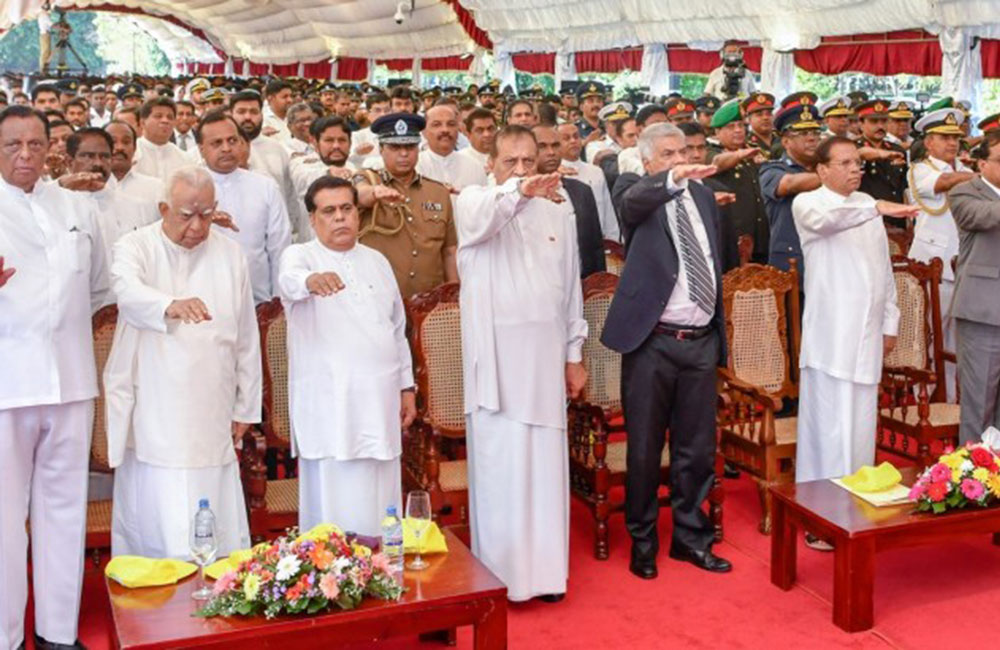
Sri Lanka takes 'Bakmaha Divuruma' pledge to create a drug free country
Sri Lankans across the country took the 'Bakmaha Divuruma', a national pledge to eradicate the drug menace to confirm their total commitment to control and eliminate the illegal drugs from the country.
The inaugural event of this programme was held under the patronage of President Maithripala Sirisena today (03), at the Independence Square in Colombo, with the participation of the Prime Minister Ranil Wickremesinghe, Speaker Karu Jayasuriya, MPs and Heads of Tri-Forces. The public attended the ceremony in large numbers as well.
Those who gathered at the Independence Square pledged to commit themselves to make the country free of illicit drugs for the sake of the future generation, to successfully conduct drug prevention programmes, to take steps to shun drugs as an individual, and to contribute for the great collective efforts to free the Sri Lankan public from drug menace.
This event was live streamed through electronic media, and it was simultaneously telecast to institutions, public offices, schools and the general public.
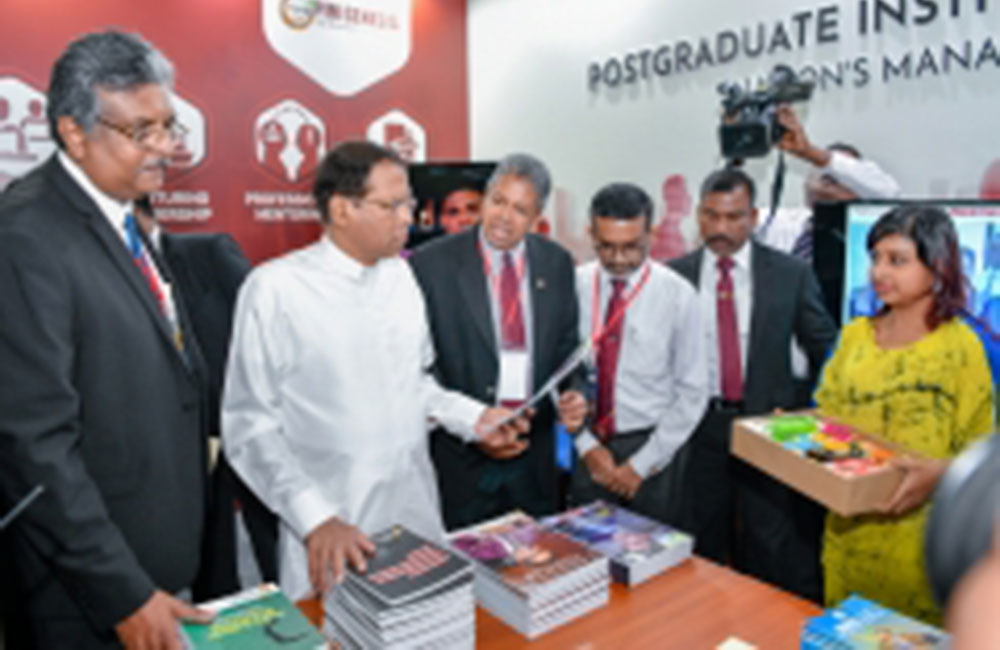
President inaugurates "INNOVATE SRI LANKA 2019” exhibition
In the process of overcoming economic and social challenges presented before the country, president Maithripala Sirisena said that the intervention of intellectuals is more important than the role of the politicians.
The president made this remark while participating in the inaugural ceremony of the “INNOVATE SRI LANKA 2019” exhibition held at the BMICH.
This exhibition is organized simultaneously to celebrate the 60th anniversary of Innovation, Invention and Venture Creation Council of Sri Jayawardenapura University.
The president inspected many exhibits accompanied by the Vice-Chancellor of the Sri Jayewardenepura University Prof. Sampath Amarathunga and Vidyajyothi Dr. Bandula Wijey, an international ambassador for Science and Technology.
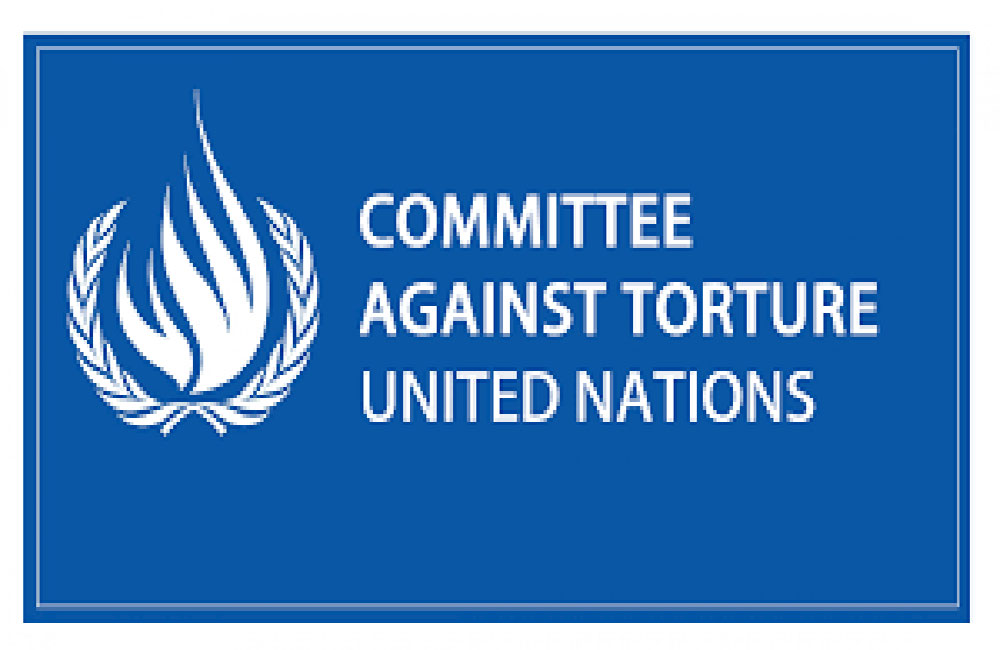
UN torture prevention body visits Sri Lanka
A delegation of the UN Subcommittee on Prevention of Torture (SPT) arrived in Sri Lanka yesterday for an 11-day visit.
The SPT will examine the treatment meted out to people deprived of their liberty in the Indian Ocean island nation and the safeguards in place for their protection from torture. It will hold meetings and discussions with ministries and government officials in addition to meeting members of the Human Rights Commission of Sri Lanka and various civil society organizations.
Article 1 of the Optional Protocol of the Convention against Torture and Other Cruel, Inhuman, or Degrading Treatment or Punishment (OPCAT) mandates the creation of the SPT. The objective is to establish a system of regular visits undertaken by an independent international body to places where people are deprived of their liberty, in order to prevent torture and other cruel, inhuman or degrading treatment or punishment. Sri Lanka ratified OPCAT in 2017.
Under OPCAT, the mandate of the SPT is to visit places of detention in states and to advise and assist states concerning the establishment and functioning of national torture preventative mechanisms. It has unrestricted access to all places of detention, installations and facilities and to all relevant information relating to the treatment of persons and to conditions of detention.
The SPT is empowered to undertake private and confidential interviews with both persons deprived of their liberty and any other person who, in the SPT’s opinion, may supply it with relevant information. The SPT also co-operates with international, regional and national organizations and institutions working to strengthen protection against torture and ill-treatment.
“During our visit we will be exploring the steps Sri Lanka needs to take to effectively prevent torture and ill-treatment of people deprived of their liberty,” said Victor Zaharia, who heads the delegation. “We will also advise the authorities on the full implementation of their treaty obligations, including how they can best establish a national independent body to visit places of detention,” he added.
Eighty-nine countries have ratified OPCAT as of March 2019.
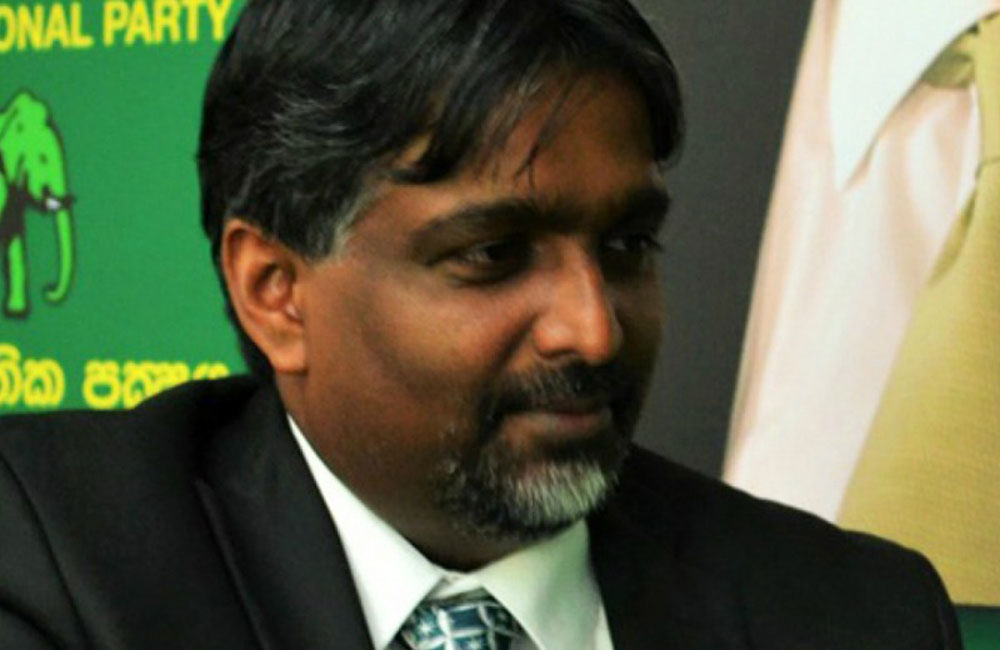
Ashu Marasinghe resigns from post of Assistant Chief Government Whip
Following the defeat of the expenditure heads of two ministries of government on Thursday, the Assistant Chief Government Whip, MP Prof. Ashu Marasinghe of the ruling United National Party has resigned from his post.
Marasinghe said the decision to resign was taken at the committee stage budget vote held yesterday.
The expenditure heads of the Ministry of Megapolis and Western Development Ministry headed by Minister Patali Champika Ranawaka and of Minister Vajira Abeywardena's Internal and Home Affairs and Provincial Councils and Local Government were defeated yesterday in an unexpected move during the committee stage of the Budget 2019 when the opposition unexpectedly called for a division while most of the government members were absent.
Prof. Marasinghe, speaking to media today, said he was disappointed that he could not fulfill his role as the Assistant Chief Whip of the government and accordingly decided to resign from the post. He said the Prime Minister and UNP leader Ranil Wickremesinghe has accepted his resignation.
Marasinghe stressed that he will be committed to providing a strong contribution to the party and the government in the future. (Colombo Page)
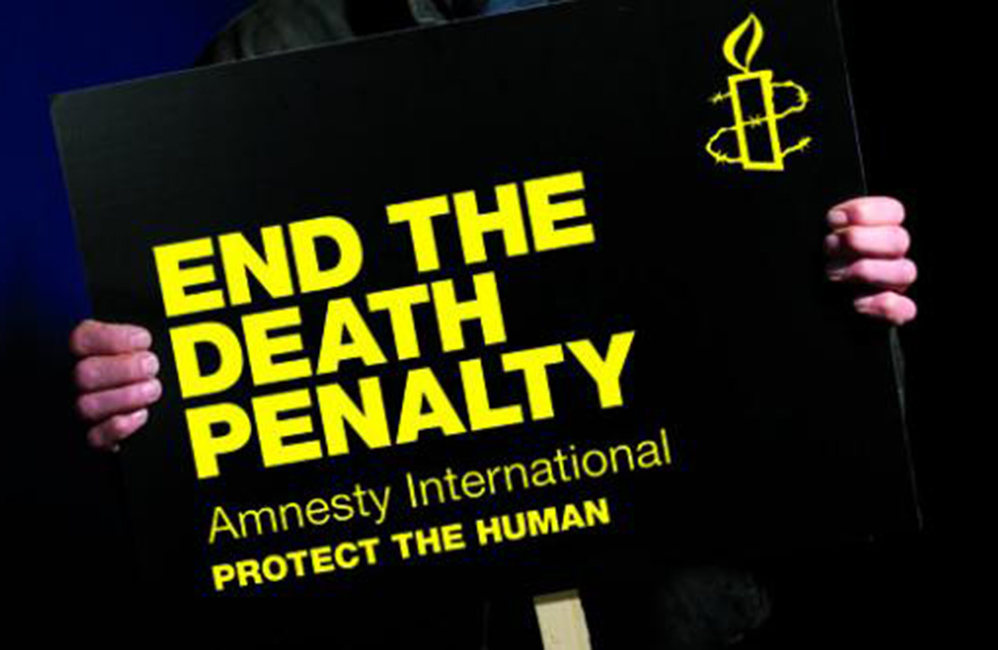
Executions will not end drug-related crime: Amnesty International
Executions will not end drug-related crime in Sri Lanka, Amnesty International said today, in a new briefing that makes the case against President Maithripala Sirisena’s plan to revive the death penalty 43 years after the last execution was carried out on the island.
The briefing, Sri Lanka: Halt Preparations to Resume Executions, highlights how the death penalty is being used in circumstances that violate international law and standards, has failed to act as a unique deterrent to crime in other countries, could claim the lives of people who may have been convicted through unfair trials, and could disproportionately affect people from minority and less advantaged socio-economic backgrounds.
“There is no evidence that implementing the death penalty will end drug-related crime. Executions are never a solution. Indeed, they may result in people being put to death following unfair trials. The death penalty is also a punishment that disproportionately affects people from less advantaged socio-economic backgrounds,” said Biraj Patnaik, South Asia Director at Amnesty International.
Amnesty International’s briefing highlights the lack of evidence that the death penalty has unique deterrent effect on crime. Statistics from countries that have abolished the death penalty show that the absence of executions has not resulted in an increase in crimes, previously subjected to capital punishment.
The briefing highlights countries that have abolished the death penalty, or amended drug laws, including Iran where recent legislative amendments have resulted in a significant decrease in executions of people convicted of drug-related offences. Similarly, in Malaysia, the government announced a moratorium on executions and a review of the country’s death penalty laws, after having introduced some sentencing discretion for the offence of drug trafficking in 2017.
Amnesty International also highlights how the trials of those facing execution could have failed to meet international fair trial standards, due to torture and forced “confessions” being routinely practiced in Sri Lanka’s criminal justice system, as noted by the National Human Rights Commission of Sri Lanka and UN experts.
“There is no coming back from an execution. There is no criminal justice system that is perfect. The risk of executing an innocent person can never be eliminated, and the injustice that ensues can never be redeemed,” said Biraj Patnaik.
Furthermore, the briefing also highlights that evidence from other countries shows that defendants from less advantaged socio-economic backgrounds, belonging to racial, ethnic or religious minorities are disproportionately vulnerable to being sentenced to death.
Amnesty International calls on the Sri Lankan government to halt its current execution plans and establish an official moratorium on the implementation of death sentences, with a view to abolishing the death penalty altogether.
“No criminal justice system is capable of deciding fairly who should live or who should die. Sri Lanka has not implemented this ultimate cruel, degrading and inhumane punishment for more than four decades. It should continue to honour a tradition that chooses life instead of vengeance,” Patnaik added.
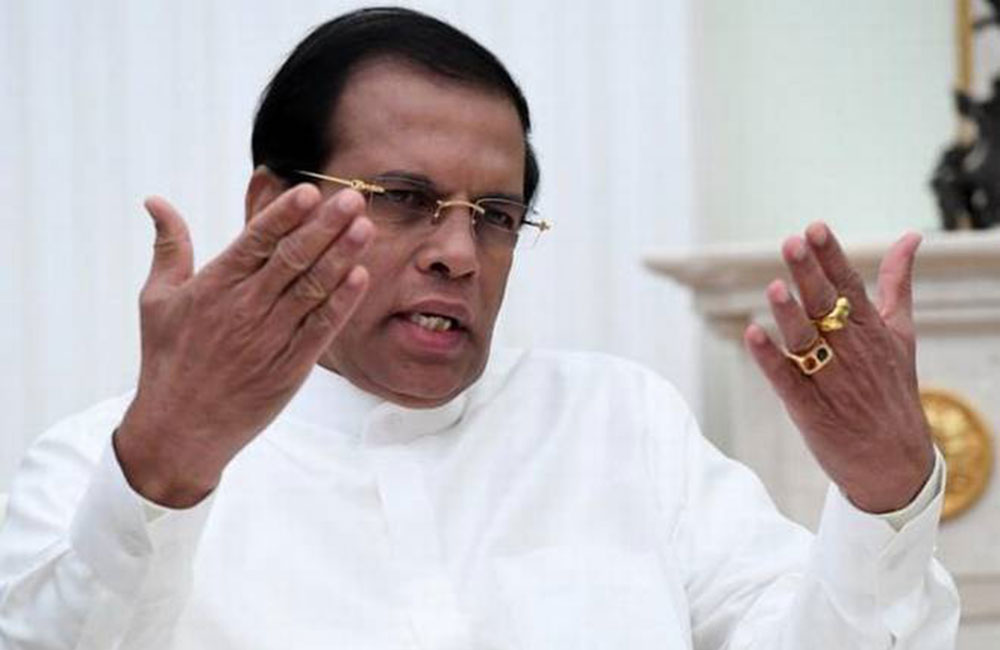
Sri Lanka made an official request to extradite Mahendran on May 28: PMD
Dismissing an alleged statement made by a spokesperson for the Ministry of Foreign Affairs of Singapore that the Government of Sri Lanka has not provided any documents requesting for the deportation of a person from that country, the President's Media Division (PMD) in a statement said today that Sri Lanka had made an official request on May 28, 2018 through the Secretary to the Ministry of Defence at diplomatic level to extradite Arjun Mahendran to Sri Lanka.
" Subsequently, the Singapore Ministry of Foreign Affairs has informed the relevant Sri Lankan authorities, including the Secretary to the Ministry of Defence, that the attention of the Attorney-General of Singapore has already been drawn regarding the request made by Sri Lanka," the statement said.
The extradition law applicable to Singapore is the Extradition Act enforced in that country. Sri Lanka’s Criminal Investigation, by its submission 8266/2018-B, to the Fort Magistrate states that the former Governor of the Central Bank has committed an offence that falls within offence No.18 in Section 2 of the Extradition Act of Singapore.
"Based on that report, the INTERPOL has issued a Red Notice on April 19, 2018, and the said Red Notice has also been attached to the extradition request made from the Singaporean government", the statement said.
During the recent official visit made by President Maithripala Sirisena to Singapore, the President made a request to extradite Mahendran to Sri Lanka based on that foundation.
Accordingly, the Sri Lankan government has provided the core information necessary for the Singaporean government to extradite Mahendran, and it has also been requested, on that basis, a warrant to be issued against him through the officials of the government of Singapore, the PMD said.
It was also revealed that the Attorney-General of Singapore has informed the Sri Lankan counterpart through the Sri Lankan Foreign Ministry to further explain the accusations leveled against Arjun Mahendran and, at present, the Sri Lankan Attorney-General is preparing a detailed report to be submitted to Singapore according to the recent letter received from them.
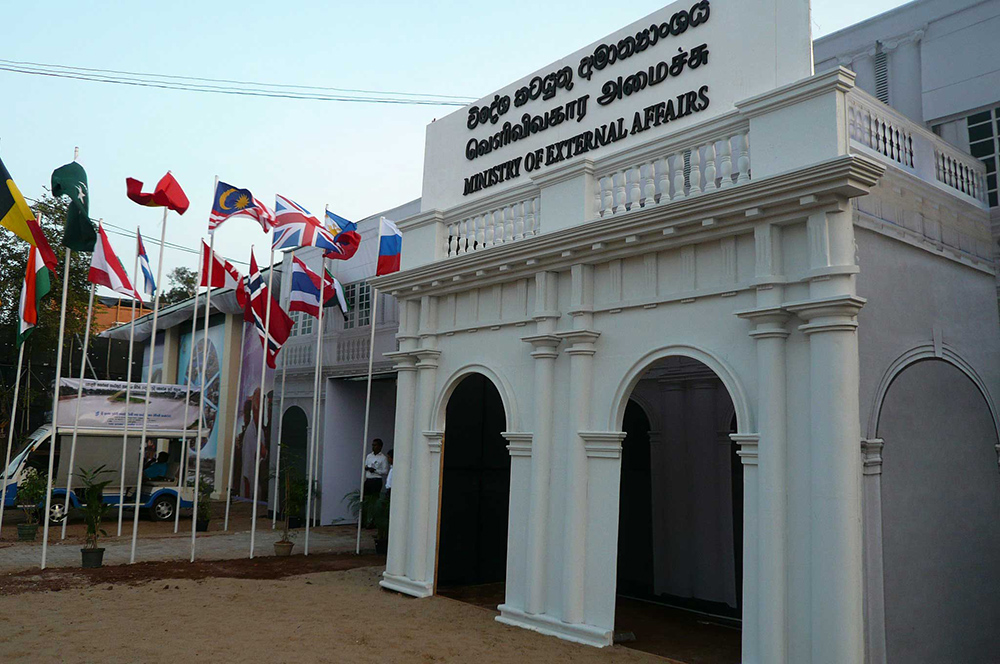
Foreign Ministry censors statements made by the Finance Minister
For long years, the Ministry of Foreign Affairs has been sending clippings from the local newspapers on a daily basis to all Sri Lanka Missions overseas. However, since of late, the Missions have come to notice that the Ministry of Foreign Affairs leaves out statements made by the Minister of Finance from these daily news clippings.
The Finance Minister recently issued two statements on matters related to human rights and the resolutions adopted by the Human Rights Council on Sri Lanka. One statement that was carried in the press on 20th March was in response to a statement made by the Leader of Opposition Mahinda Rajapaksa.
In the second statement that was carried in the press on 02nd April, the Minister of Finance said that he felt that it is his duty, as the person who held the portfolio of Foreign Affairs when the original 30/1 resolution was adopted on 01st October 2015, to respond to some of malicious arguments being made and misrepresentation of facts relating to the recent 40th session of the Human Rights Council.
The censorship by the Ministry of Foreign Affairs has led some to wonder whether the Ministry of Foreign Affairs does not want its Missions to find out the truth about important matters pertaining to the human rights of all citizens as well as matters pertaining to Sri Lanka’s engagement with the world which is the primary task of the network of Missions overseas. Some have been wondering whether the Foreign Ministry knows that the 52 day political crisis has ended. Perhaps the Minister of Foreign Affairs Tilak Marapana and his Secretary Ravinatha Aryasinha think that the Foreign Ministry belongs to an imaginary SLPP Pohottuwa Government, and the 52 days have not quite ended for them as yet.
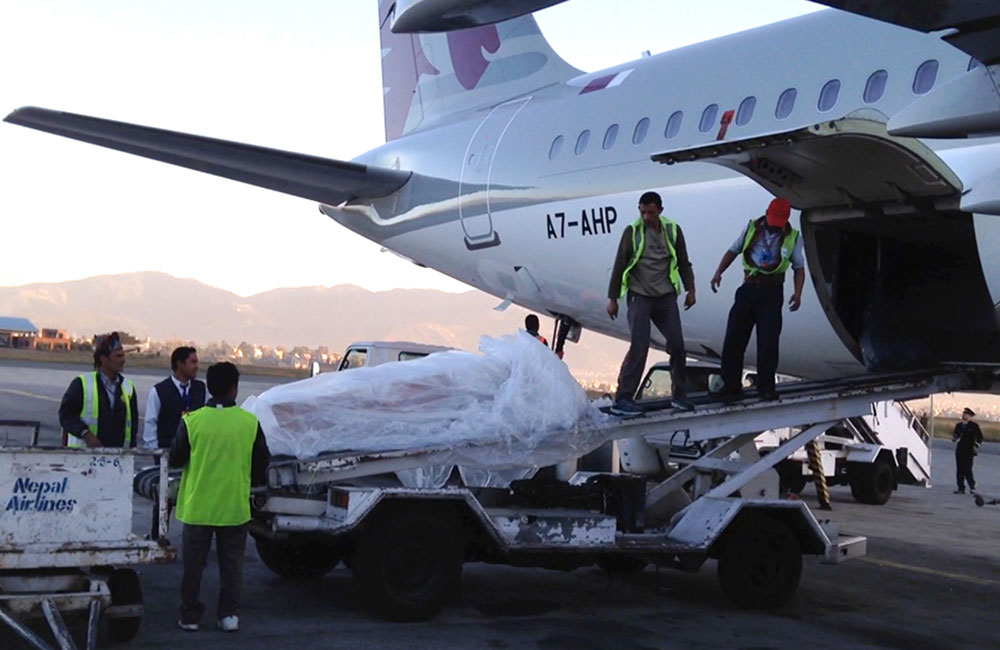
Kerala family gets Lankan woman's body instead of son's coffin
The body of Rafeeq Abdul Razak, who died of a heart attack in Saudi Arabia on February 27, had finally arrived at the Cochin International Airport on Thursday, or at least, that is what his family thought when they received his coffin. However, a few hours later, they were in for the shock of their lives when they opened the coffin on their way to Rafeeq’s native place in Kummannoor, Pathanamthitta district. It was not Rafeeq’s body; it was the body of a woman in the coffin.
The deceased woman has been identified as a Sri Lankan national. Now, while the woman’s body is in Kerala, Rafeeq’s body is in Colombo in Sri Lanka. “It was a mistake from the part of the Saudi Arabia Airlines at the Jeddah airport,” an official of the airlines in Kochi said.
The identification tags for both the coffins somehow got exchanged at Abha International Airport in Jeddah, Saudi Arabia. Both the bodies were sent to their respective destinations on Saudi Arabia Airlines, the national carrier of the Kingdom.
“The number for Rafeeq’s coffin was 35, but instead, the number tag of 32 was attached to his coffin,” said Bency Mohan of Navayugam, an organisation in Saudi Arabia that facilitates the repatriation of Indian bodies to their native states.
“When Rafeeq, who was working as a driver in Saudi Arabia, did not turn up for work, his sponsor went to his room and found him dead there,” Bency told TNM.
His sponsor and the Indian Embassy in Saudi Arabia helped Rafeeq’s family expedite the paperwork and made sure his body is transported to Kerala.
Now, with both the bodies in different countries, the officials of Saudi Arabian Airlines, also known as Saudia, are working towards exchanging the bodies.
“However, since both the coffins and the shrouds have been opened, the bodies will have to be embalmed again. We will embalm the Sri Lankan woman’s body here. Similarly, Rafeeq’s body will be embalmed in Colombo. So it will take one more day. The Saudia airlines’ offices in Cochin and Colombo are coordinating to exchange the bodies,” the airlines official said.
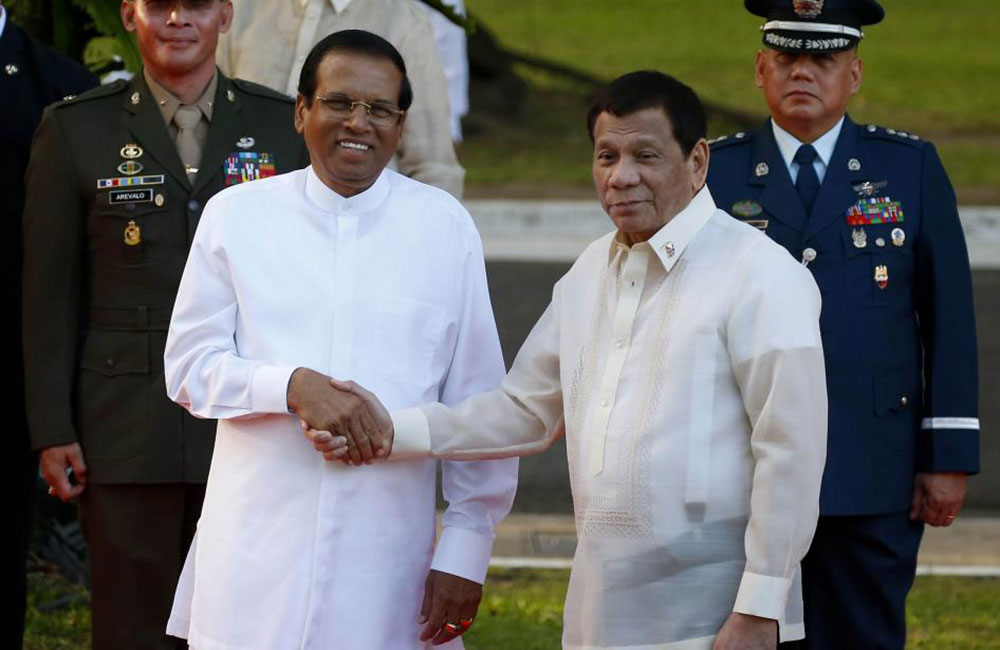
Don’t End Death Penalty Moratorium: HRW
The Sri Lankan government should drop plans to resume executions, which would end an unofficial 43-year moratorium in the country, Human Rights Watch said today. On March 31, 2019, President Maithripala Sirisena said that a date had been set to resume carrying out the death penalty in drug trafficking cases.
Sirisena renewed calls for the death penalty following a visit to the Philippines in January, during which he called President Rodrigo Duterte’s “war on drugs” an “example to the world.” In March, the United Nations high commissioner for human rights, Michelle Bachelet, reported to the UN Human Rights Council that up to 27,000 people have been killed in the Philippines’ anti-drug campaign. The UN, nongovernmental organizations including Human Rights Watch, and the media have linked the killings of alleged drug dealers and users to the police and police-backed vigilantes.
“There is no reason to bring the death penalty back to Sri Lanka after a four-decade moratorium,” said Meenakshi Ganguly, South Asia director at Human Rights Watch. “President Sirisena’s decision to restore the death penalty because he was inspired by the Philippine’s murderous ‘drug war’ may be the worst possible justification and would violate international law.”
The death penalty has not been carried out in Sri Lanka since 1976. Currently, 1,299 prisoners – 1,215 men and 84 women – are on Sri Lanka’s death row after having been convicted for capital offenses, including 48 for drug crimes. In February, the government began advertising in local newspapers for a hangman, seeking male candidates between ages 18 and 45 with “excellent moral character” and “a very good mind and mental strength.”
The alleged deterrent effect of the death penalty has been repeatedly debunked, Human Rights Watch said. In 2015, the UN assistant secretary-general for human rights, Ivan Šimonović, stated that there was “no evidence that the death penalty deters any crime.” Even with respect to murder, an Oxford University analysis concluded that capital punishment does not deter “murder to a marginally greater extent than does the threat and application of the supposedly lesser punishment of life imprisonment.”
The UN has also opposed the use of the death penalty for drug-related crimes. In a March 2010 report, the UN Office on Drugs and Crime called for an end to the death penalty and specifically urged member countries to prohibit the use of the death penalty for drug-related offenses, and called on countries to take an overall “human rights-based approach to drug and crime control.” In its 2014 annual report, the International Narcotics Control Board, the agency charged with monitoring compliance with UN drug control conventions, encouraged countries to abolish the death penalty for drug offenses.
Imposing the death penalty for drug offenses would violate Sri Lanka’s international human rights obligations, Human Rights Watch said. The International Covenant on Civil and Political Rights, to which Sri Lanka is party, states in article 6 on the right to life that the death penalty “may be imposed only for the most serious crimes.” The UN Human Rights Committee, which monitors state compliance with the covenant, said in a 2018 general comment that “most serious crimes” applies “only to crimes of extreme gravity, involving intentional killing. Crimes not resulting directly and intentionally in death, such as … drug … offences, although serious in nature, can never serve as the basis, within the framework of article 6, for the imposition of the death penalty.”
Sri Lanka was one of the first countries in South Asia to cease carrying out the death penalty. In December 2018, Sri Lanka joined 120 countries at the UN General Assembly that voted in favor of a resolution on the “Moratorium on the use of the death penalty.” Only 35 countries voted against the resolution. Human Rights Watch opposes the death penalty in all circumstances because it is inherently cruel and irreversible.
“The Sri Lankan government should publicly recommit to its moratorium on the use of the death penalty with a view to permanently abolishing the practice,” Ganguly said. “Executions, whether imposed by a judge or carried out unlawfully by the police, are not the way to address drug offenses.”
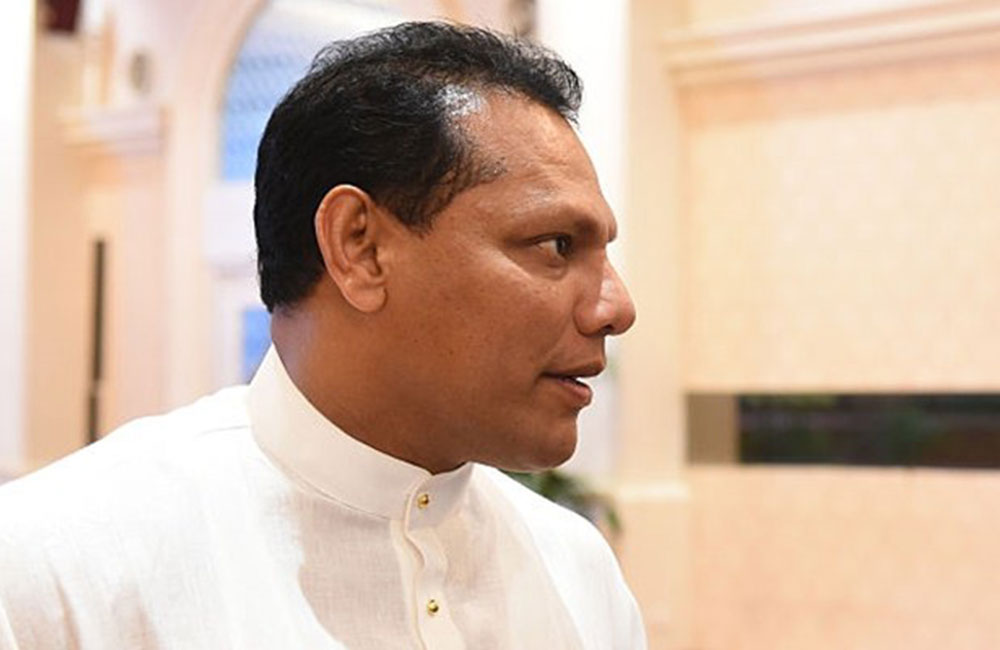
SLPP caused the biggest damage to SLFP: Dayasiri
Sri Lanka Freedom Party (SLFP) General Secretary Dayasiri Jayasekera said that the Sri Lanka Podujana Peramuna (SLPP) was responsible for destroying the SLFP.
Speaking at a public rally yesterday (21), he stated that the activities of the SLPP during the past year and a half has caused severe damage to the SLFP.
However, he also said that the SLFP and the SLPP have agreed to another round of talks between the two parties scheduled to take place on April 10th.
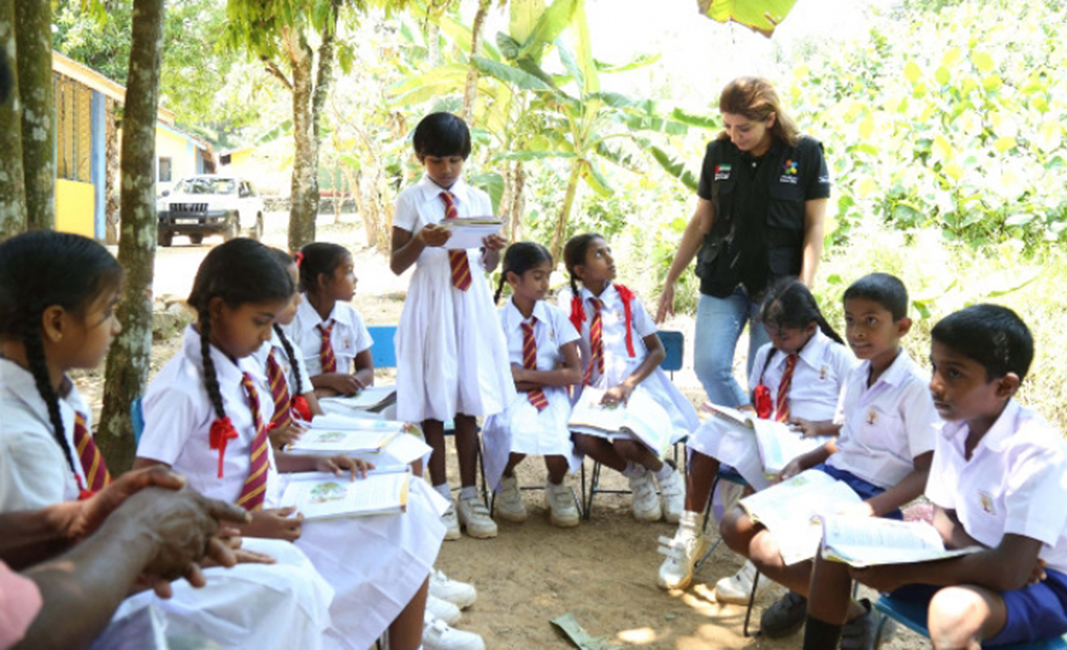
Dubai Cares’ programme to benefit 30,000 Sri Lankan children
More than 30,000 children in Sri Lanka will benefit from the new literacy programme launched in their districts, thanks to the partnership of Dubai Cares and Save the Children.
A delegation from Dubai Cares recently visited Sri Lanka to launch the programme that aims to improve children’s literacy levels in the Northern and Southern Provinces of Sri Lanka where there is a critical need to improve the quality of education.
The $1 million (Dh3.6 million) project has three main pillars mainly assessing students’ current literacy levels; building the capacity of teachers, school administrators and government in supporting children’s literacy skills; and working with the community to promote reading awareness and strong language development.
The new programme was driven by the success of the first programme of Dubai Cares in Sri Lanka. It is also expected to indirectly benefit 7,500 children, 1,000 teachers and 13,900 parents through teacher training and community-based activities.
Commenting from the field on the importance of the new programme, Abdullah Ahmad Al Shehhi, Chief Operating Officer at Dubai Cares, said Dubai Cares is encouraged by the success of its first programme in Sri Lanka, which demonstrated the high impact of Literacy Boost within the country’s education system.
“By building up on the success of the first program, we are helping to tackle the education gaps through expanding our reach to more districts throughout the country, as well as supporting the Ministry of Education to phase-in Literacy Boost in every primary school in Sri Lanka.”
Dana Jawad Amr, Programmes Officer at Dubai Cares, added: “From student assessments to capacity-building for teachers and administrators, we are proud to support the creation of skills-based curricula that can embed literacy components and be used by teachers effectively in their pedagogy.”
The Dubai Cares delegation also met with Vijayakala Maheswaran, State Minister of Education in Sri Lanka, and Save the Children’s in-country and global teams, including Helen l’Anson, Country Director.
I’Anson said the Literacy Boost approach helps children improve key reading skills through a mix of school, community and home-based activities.
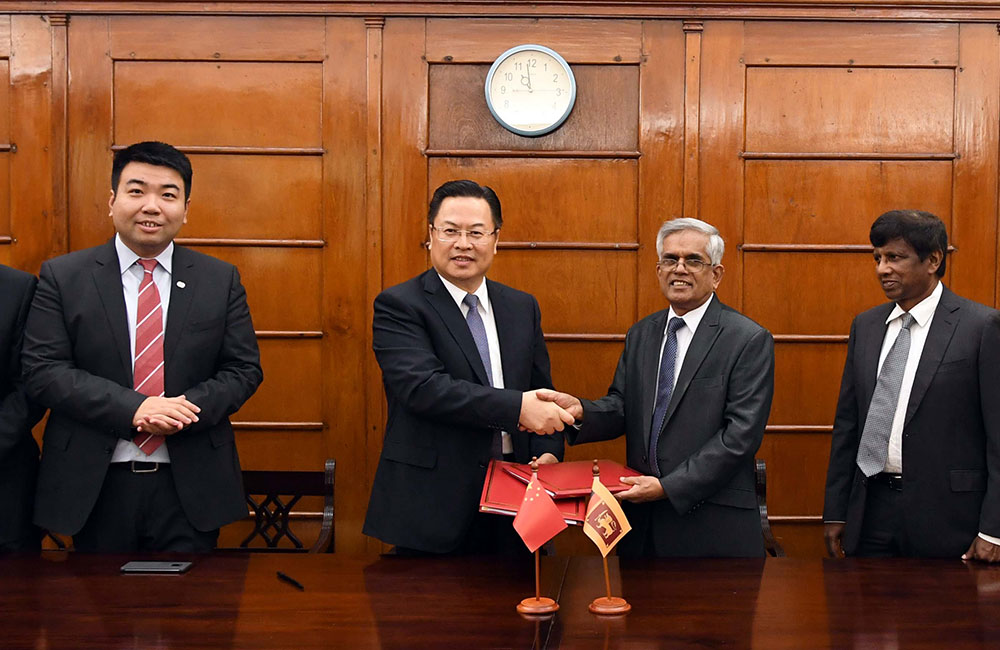
Concessional loan of US$ 989 million from the China's EXIM Bank for Central Expressway Project
The Export- Import Bank of China (EXIM Bank) has agreed to provide a concessional loan amounting to US$ 989 million covering 85% of the contract price, for the Central Expressway Project - Section 1 from Kadawatha to Meerigama.
The total estimated cost of the project is US$ 1,164 million. Furthermore, this loan is the single largest loan approved by the EXIM Bank for Sri Lanka, the Ministry of Finance said in a statement.
Since, the implementation of the Section 2 of the Central Expressway has already been commenced with the financial assistance of local commercial banks, this loan facility from China EXIM Bank will facilitate the speedy implementation of Kadawatha –Meerigama section ensuring the connectivity of the expressway network up to Kurunagala.
Accordingly, the loan agreement was signed today (22) by Dr. R H S Samarathunga, Secretary, Ministry of Finance on behalf of the Government of Sri Lanka and Cheng Xueyuan, Ambassador of the People’s Republic of China, Embassy of China in Sri Lanka on behalf of the Export – Import (EXIM) Bank of China at the Ministry of Finance.
Page 332 of 510